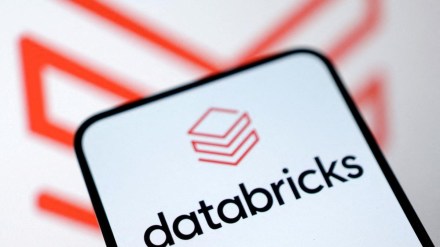US-based Databricks, the provider of data architecture and AI platforms,will be utilising its $250 million investment in India over the next three years towards building capabilities in engineering, training, customer support, and go-to-market initiatives, the firm’s senior vice president and general manager for Asia Pacific & Japan Ed Lenta told FE.
According to Lenta, the investment reflects the growing importance of India in the company’s global strategy—not just as a technology and talent hub, but also as a market where large, traditional enterprises are now leading growth.
While India’s digital-native firms were among Databricks’ earliest adopters, legacy and traditional businesses are now emerging as the next big opportunity. “Our fastest-growing segment in India today is the (legacy) enterprise market,” Lenta said. “We only see that accelerating.”
Lenta, however, refrained from giving market specific revenue growth or guidance citing company policy.
The firm’s shift marks an important milestone for the company in India. When Databricks first entered the Indian market over five years ago, its initial success came from technology-first firms like Zepto, Dream11, Freshworks, and Swiggy. These companies were built on cloud infrastructure from day one and were already aligned towards using the modern data architecture solutions that Databricks offers, Lenta said.
Even as it continues to engage with the digital natives, Databricks has expanded its efforts to tap Indian conglomerates and financial institutions over the past four years. Today, several companies from the Tata Group and banks like HDFC are using the platform to consolidate fragmented data systems and move toward unified, AI-ready infrastructure.
These enterprises often deal with siloed systems, legacy data warehouses, and multiple technology layers—areas where Databricks sees significant potential to drive efficiency and scale, Lenta explained.
Alongside its enterprise push, Databricks is expanding its local talent footprint. The company’s Bengaluru engineering hub now spans over 100,000 square feet and is steadily expanding its R&D vertical in the country.
Indian engineering teams play a central role in the development of core products, working on areas such as large language models (LLMs), real-time data ingestion, and tools like Databricks Connect. Lenta noted that this local talent is contributing to global product innovation. This development is leading the company to consider India not only as a source of high-quality engineering talent, but as a key contributor to its global product roadmap.
At the recent Data+AI Summit hosted by the company, co-founder Ali Ghodsi reiterated the firm’s confidence in India saying Databricks will continue to aggressively invest in India.
The company is also launching a large-scale training initiative aimed at building a broader talent pool in India. It plans to train 500,000 people in data and AI skills over the next three years. The firm’s own employees as well as partner employees will be included in this initiative. The training will cover a range of roles that includes engineers, analysts and business users. The training will be delivered using digital platforms, to reach people at scale.
Databricks sees this as an essential strategy to support its local partner ecosystem, which plays a major role in delivering its services globally and across India. These partners help with migration, implementation, and ongoing support for its customers.
For Databricks, India is also a lucrative market,given the size of its digitally engaged population and the Indian government’s push towards digitisation through platforms like United Payments Interface (UPI).
According to the firm, these factors have created the right conditions for building a robust data ecosystem. Databricks also sees regulatory developments—particularly around data security and localisation—not as hurdles but as enablers. Lenta explained that the firm’s platform is built to align with such requirements, allowing customers to keep data within their own cloud environments, hosted in India. “We actually see it (regulation) as a tailwind,” Ed Lenta noted, adding that Databricks’ architecture helps customers meet compliance goals without giving up control of their data.
